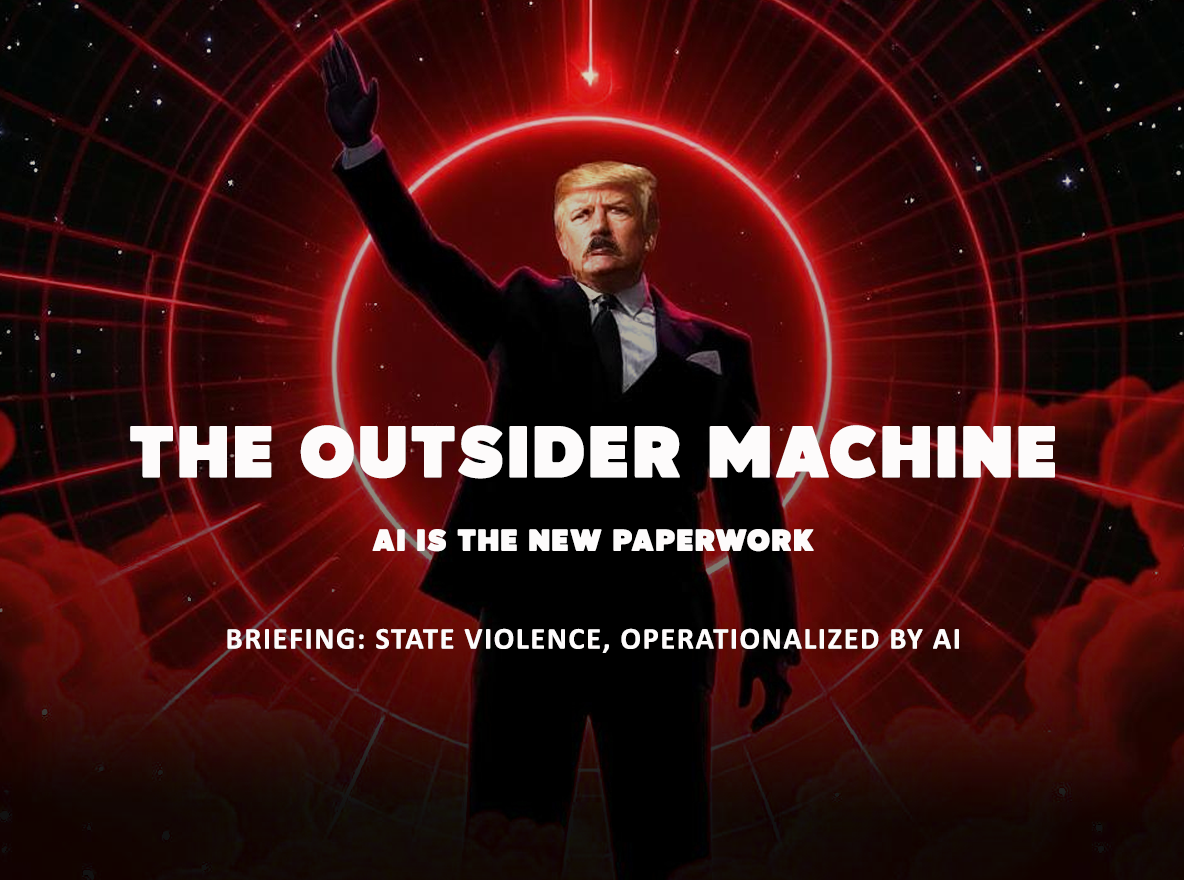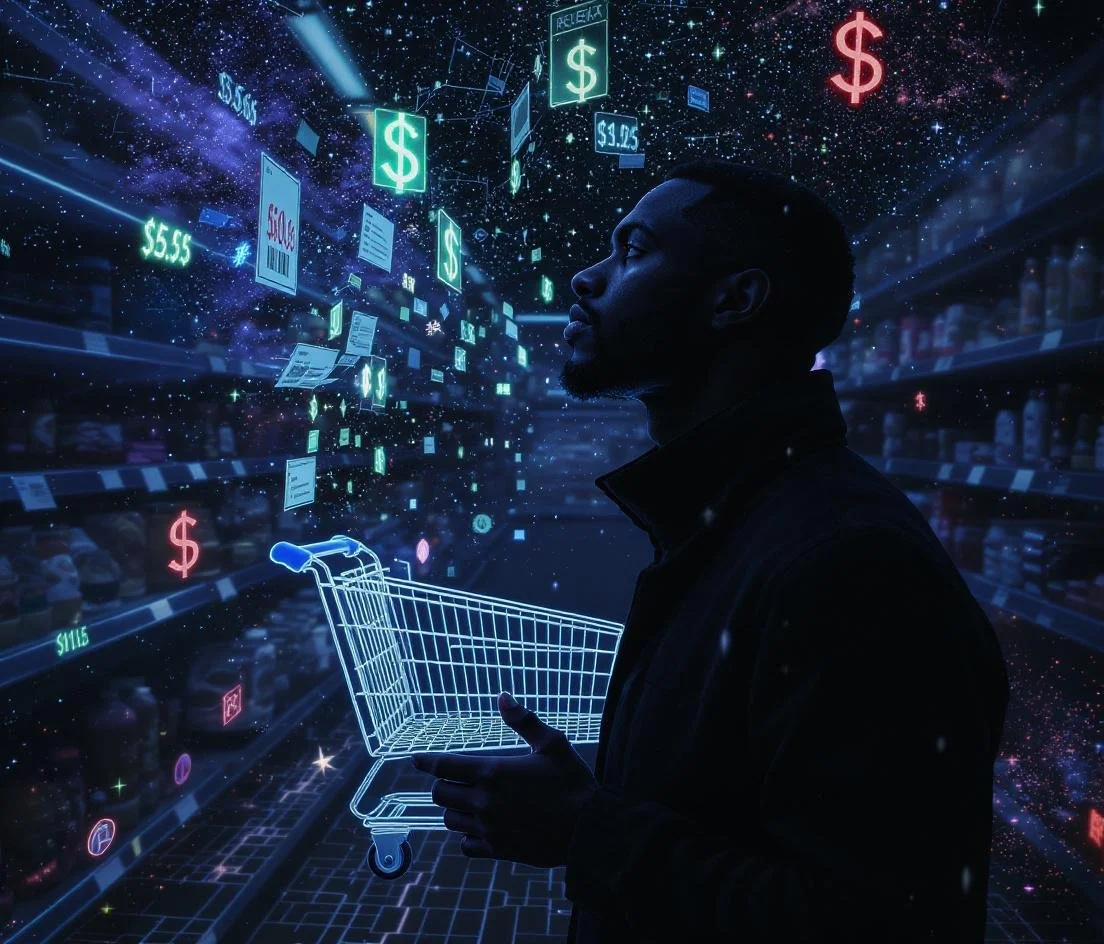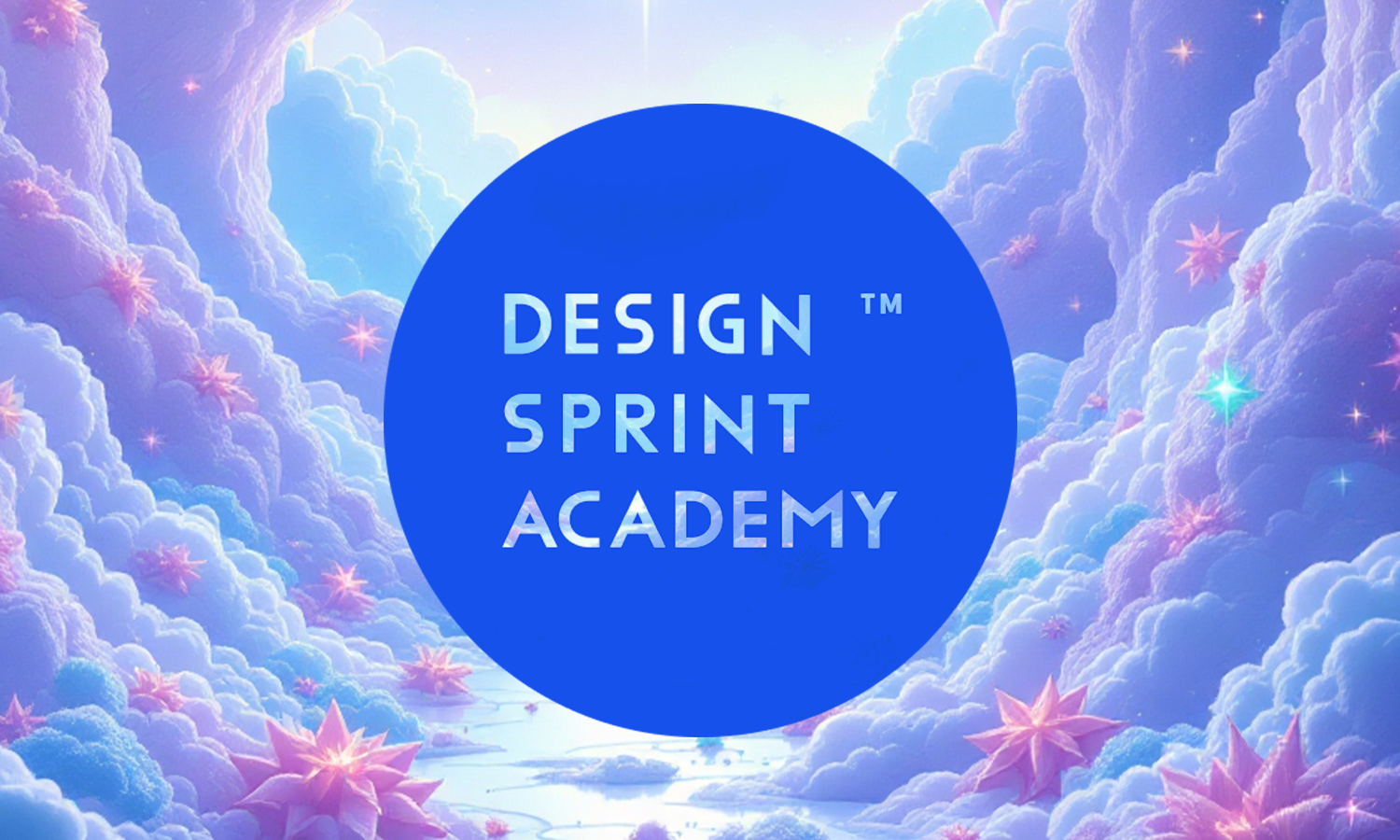
Essays & Deep Cuts
Personal Writing, Philosophy, and the Inner Lens
More intimate, reflective essays — the pieces where identity, clarity, queerness, craft, and growth meet. The work behind the work.
Tyranny rarely arrives as a coup. It arrives as a workflow. The Nazis proved how fast an outsider story becomes administration. Today, the paperwork is digital: prioritization engines, field biometrics, and enforcement pipelines that treat due process as friction.
This week, I wasn’t reacting or firefighting. I was designing.
Not control, but structure. Not hierarchy, but clarity.
What I learned is simple: when leaders refuse to define the systems they run, ambiguity becomes a shield. People don’t grow. They contract. And the work slowly hollows out.
Structure, when built with intention, does the opposite. It gives people relief, dignity, and the space to do their best work.
This final chapter exposes the pattern beneath the stories: harm that was never random, collapse that was never personal, and a system that functioned exactly as designed. It traces how charisma without accountability becomes manipulation, how warmth without protection becomes theater, and how people are trained to normalize what should never have been normal. When the dust settled, one truth remained: the body told the truth long before the organization ever would.
When the noise finally stopped, the pattern came into focus. The employee had not failed to “handle stress.” They had been shaped by a system that rewarded harm, normalized confusion, and relied on their silence. Part Five dissects the archetypes that uphold that system and reveals the psychology beneath the collapse.
Instacart calls it experimentation. Consumer Reports and Groundwork Collaborative call it what it is: an AI pricing system that quietly tests how far it can push your grocery bill. This essay connects their findings to food deserts, price elasticity, and racialized access, and lays out the guardrails any serious retailer or regulator should demand before turning AI loose on the cost of eating.
Lately my mind has been looping the same quiet questions. What is my place in this world? What is purpose, beyond survival and productivity? Where do my boundaries start and end. How do I want to live in a time that can feel clinically cold one moment and impossibly brilliant the next?
At the Canadian border, an officer asked what I thought about AI. When I told him its darkest risk is erasure, he brought up something most people avoid. New hires sometimes rely on instinct more than training, and their decisions shape who gets searched or stopped. If AI learns from those patterns, the bias becomes logic. This piece explores how border automation can harden inequities that already exist, and why systems must be designed to truly see the people they serve.
Answer synthesis is positioned as the future of search, but most AI systems cannot see underrepresented communities clearly enough to summarize them. When a model replaces exploration with a single synthesized answer, nuance disappears and minority perspectives fall out of view. This piece examines how visibility collapses inside synthesis systems and what must change before this shift becomes the default.
Design Sprint Academy delivered one of the clearest AI frameworks I’ve seen. Their focus on structured decision making, guided facilitation, and rapid learning is powerful. Through a retail lens, the work becomes even more interesting. Retail has two customers, deep emotional dynamics, and identity shaped behaviors that must be understood from the first conversation. The result is a richer, more human way of framing AI value. Here is what I learned and how the framework expands inside a sector that never stops moving.
In the early days of the AIDS crisis, Elizabeth Taylor chose truth over safety and stood publicly with the gay community when the world demanded silence. This essay explores what she really did for Rock Hudson, why her voice changed history, and how her example shows us the kind of leadership we owe ourselves and each other.
There are moments when your voice becomes impossible to ignore. This is the story of how pressure clarified my purpose, sharpened my leadership, and revealed the future I am built to lead in.
AI doesn’t fail queer and BIPOC people because of “bias.” It fails because it cannot interpret our identities with accuracy, context, or cultural truth. This essay reveals the mechanisms behind that harm and introduces a new architecture to prevent identity collapse in the age of autonomous AI.
Most people use AI to write faster. I used it to learn who I was. Over the past year, writing with machines became a mirror that stripped away the noise, surfaced my patterns, and revealed a voice I didn’t know I had.
This essay is a lead in to my six part series, A System Built On Silence. It follows a composite employee inside a composite organization and asks a simple question with uncomfortable answers: what does this system do to a human nervous system over time, especially when that human is not at the center of power. There is no redemption arc here, only a clear line between identity, harm, and why my future work on The Knox AI Empathy System™ will not pretend to be neutral.
This one was hard to write. Not because I’m mad. Because I still want the blanket.
For years, Target was the rare brand that made belonging feel casual. You’d walk in for toothpaste and walk out with a little affirmation tucked into your bag. Pride wasn’t seasonal — it was spatial. It lived in the aisles, woven into the colors, the tone, the quiet promise that this place sees you.
And then, 2023 happened. The backlash. The retreat. The silence.
When Target pulled its Pride collection, it didn’t just move product — it moved meaning. It told queer people what we’ve always half-suspected: our safety here was situational.
This isn’t about outrage. It’s about empathy debt — the emotional residue that builds when remorse never matures into reflection. You can’t pay it off with apologies. You pay it off with change.
I wrote AI, Craft & the Human Future of Retail because I’ve come to believe the real disruption of AI isn’t technical — it’s human. After years leading transformation work with Tredence and SymphonyAI, I watched automation accelerate faster than reflection, and intelligence scale faster than intention.
This paper is my attempt to restore that balance. It introduces The Knox AI Empathy System — a model and a mindset for designing organizations that think with care. It’s not about faster machines; it’s about wiser leaders.
Because in an age where intelligence is abundant, discernment has become the rarest skill of all.
Before AI and data, before loyalty programs and grocery analytics—I was at the wheel, shaping clay with care. That same presence guides how I build today. Not just tools that function, but systems that feel right in someone’s hands.
Every significant career leap starts with a moment of doubt. Am I ready for this? Do I have what it takes? Yet, some of the most fulfilling opportunities often lie just beyond our comfort zones, waiting for us to take a calculated risk.
As I prepare to leave SymphonyAI and step into a new chapter, I’ve been reflecting on these quiet moments and the lessons they hold. This past week, I’ve been deeply moved by the kind words of colleagues and clients who’ve shared how my work impacted their own. These conversations reminded me of something we often forget: we are far more exceptional than we give ourselves credit for.
AI has become a household name in the world of creativity. It’s helping artists design stunning visuals, musicians compose new melodies, and writers craft stories. But let’s be honest—many of us still feel a little uneasy about it. Can a machine really understand creativity? And even if it can help, what does that mean for the uniquely human magic we bring to the process?
I recently had the privilege of attending a fascinating panel discussion hosted by Domino Data Lab, where industry leaders came together to share their thoughts on one of the most pressing topics in technology today: AI governance. A huge thank you to panelists Diya Wynn, Dr. Kjell Carlsson, Bill Hostmann, and Leila Nouri for their valuable insights and expertise.
AI is reshaping CSR initiatives in ways that benefit both business outcomes and society at large. This blog post explores why retailers must embrace AI-driven social responsibility and dives into five innovative AI applications that can drive impactful change.
Recently, both friends and colleagues have asked me about using OpenAI's ChatGPT 4o, with DALL-E for image creation. How do you get images to come out with a consistent visual style or design language? To help, I put together a guide on how to generate consistent, high-quality visuals through refined prompts and AI-driven adjustments.
The Supermarket News article dismissing grocery price controls lacks a valid path forward, relying on theoretical arguments without concrete industry data. While free markets have driven economic growth, they rarely reverse inflation in healthy markets. Hyland's reliance on general economic principles and historical examples, like the 1970s gas crisis, weakens his argument against price controls, leaving it speculative and unsupported by current evidence.
In a recent article, Kinjil Mathur, the Chief Marketing Officer (CMO) of Squarespace, shared her unconventional journey to success, which began with cold-calling companies listed in the Yellow Pages to land unpaid internships (Royle). While her story is inspiring, it raises important concerns about the implications of promoting unpaid work and the hustle mentality. This blog post explores the potential negative aspects of Mathur's advice and offers solutions to mitigate these risks.
In response to the Harvard Business Review article, "Why Great Employees Leave Great Cultures," this post explores the crucial role of organizational and leadership credibility in employee retention. In today's competitive job market, retaining top talent goes beyond offering attractive perks or competitive salaries. The core of employee retention lies in organizational and leadership credibility. When words align with actions, it builds a foundation of trust and respect, essential for a thriving workplace culture.
When Stop & Shop’s leaders list these stores as “underperforming” - what does that mean? I think it is safe to say competitive pressures would contribute to a stores closure, and a merger of their two biggest grocery rivals would certainly not benefit them.
I recently attended a leadership forum with Out in Tech (OIT). Career journeys are dynamic, and each is unique, so it is important to make space to learn from others. OIT and other organizations are great at facilitating events that share experiences, so you can leave with learnings that can be applied to your working style.



























